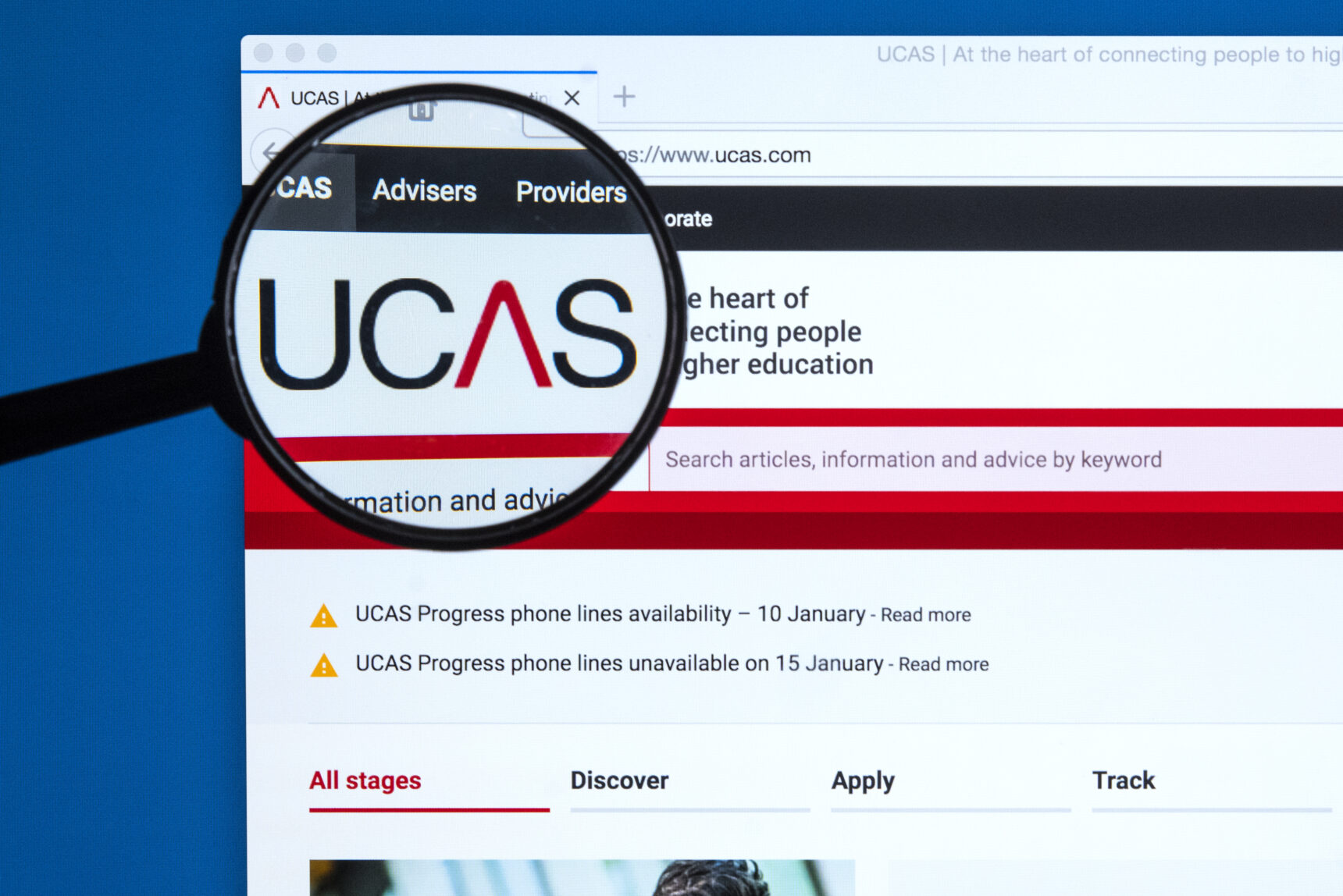Contents:
So, Results Day didn’t go quite as planned… or maybe you’ve just changed your mind about what (or where) you want to study. Either way, take a deep breath—this isn’t the end of your university journey. In fact, it might be the beginning of an even better one.
Welcome to Clearing 2025: the backup plan that’s actually a pretty great plan. Each year, tens of thousands of students find university places through Clearing, whether they’ve missed their offers, applied late, or simply had a change of heart.
At first glance, Clearing can feel a bit overwhelming. But don’t worry—we’ve broken it all down in this guide so you know exactly what to expect, when to take action, and how to give yourself the best shot at finding a university place you’re excited about.
What is Clearing?
Clearing is a way for universities to fill the empty spots on their courses and for students without offers to find a course with vacancies that will accept them.
The UCAS search tool is the official list of course vacancies, allowing you to search by subject, university, or entry requirements.
Can I use UCAS Clearing?
You might use Clearing if you:
- Didn’t submit any applications before the initial UCAS deadline
- Didn’t receive/accept any offers
- Didn’t meet the conditions for either of your offers
- Declined your firm place through your application
To be eligible for Clearing, you need to have paid the multiple-choice application fee.
When does Clearing open in 2025?
Clearing is open from 5th July to 20th October 2025. This gives you plenty of time to get things sorted, so don’t panic if A Level Results Day ends and you don’t have anything set in stone.
However, courses do fill up quickly, so try to submit your Clearing choices as soon as possible while there are still places available. While you can’t enter Clearing until you have your results, you can start researching courses as soon as Clearing opens in July to give yourself a head start.

Entering Clearing 2025 on Results Day
Results Day can be a nerve-wracking experience, to say the least. If you’re feeling anxious, you’re definitely not alone. Check out our article on Managing Results Day anxiety if you need a few extra tips to stay grounded.
Once your results are in, you’ll find out where you stand—and if things don’t go to plan, Clearing could be your next step.
UCAS starts updating students’ records from 08:15 BST on A Level Results Day, Thursday 14th August 2025. The outcome of your application will be available on your online profile around this time.
Once you log onto UCAS, you’ll see the status of your application (see below for what the different statuses mean). However, UCAS won’t show your individual grades, just whether you made your firm or insurance offer or if you don’t currently hold a university place.
To get your grades, you’ll need to go to your school or college. Check when they’ll be open from and to, and where you need to go to collect your results.
What does my UCAS status mean?
When your UCAS profile loads, it can display one of several messages:
- “Waiting for confirmation” − UCAS is still waiting to hear back about whether you’ve got a place from at least one of your offers.
- “Congratulations – you’ve been placed at your firm choice [university or college] to study [course]!” − You’re in! Wait for the university to get in touch with you about the next steps.
- “Congratulations – you’ve been placed at your insurance choice [university or college] to study [course]!” − Unfortunately, you haven’t met the conditions for your firm choice. However, you have a confirmed place at your insurance choice. Well done!
- “You’ve not been placed at your firm or insurance choices. You are now in Clearing.” − Either you didn’t receive any offers or you didn’t meet any of your offers. Once you receive your results, you can start looking for vacancies through Clearing.
There are also other potential messages that might appear on your UCAS profile, such as changed course offers. These can indicate various scenarios, like being offered a place on a different course or with different terms than you originally applied for. For a comprehensive list of all possible UCAS status messages and what they mean, it’s best to check directly on the UCAS website.

If you’re accepted into your firm or insurance choice, congratulations! There’s nothing more you need to do, and you can start getting ready for university.
If you aren’t accepted, don’t panic! There are plenty of options available to students holding no uni offers, including entering into Clearing.
Reasons for entering into Clearing 2025
1. You were accepted onto a course that you no longer want to do
Before entering into Clearing to choose a different course, you will need to reject your firm or insurance offer by clicking the ‘decline my place’ button in your UCAS application. This will cancel your contract with the university for good, so think carefully before doing anything drastic!
If you want to stay at the same university but swap to a different course, you should contact the university first, as they may be able to arrange this without the need for you to decline your place.
2. You achieved better results than expected
Firstly, well done you! Exceeding personal expectations is always exciting and (by definition) surprising.
If you got higher grades than your initial offer, you can browse Clearing vacancies for courses that meet your new requirements. If one takes your fancy, you can decline your place, enter Clearing, and register your interest with this new course.
As declining your place is permanent, it’s worth looking around at the Clearing vacancies first, and double checking with the university that there’s still a place up for grabs before clicking the button.
3. You didn’t get the results you needed
If you don’t meet the conditions of either your firm or insurance offer, don’t panic. It’s easier said than done, but remind yourself that all is not lost. No matter what your results are, there are plenty of options out there for you.
You can look for the same course at other unis or even consider applying for a different course altogether.

Don’t just stop at Pass or Fail: there are still things you can do if you don’t get the grades you need.
Before entering Clearing 2025, consider:
Calling your university
If you just missed your offer, or think there are extenuating circumstances they should consider, see if they’ll accept you anyway.
- If they won’t accept you for your original course, they might allow you to change courses to one with a lower offer, such as a foundation degree or a related subject.
- You might be able to transfer back to your original course further into your studies.
Requesting a review or remark
If a paper or two have a much lower mark than the others, or you’re a couple marks off a grade boundary, then you can ask that your papers be looked at again.
- Talk to your school or college if this is something you want to do.
- If your place at university relies on it, make sure you request a priority remark.
- You might need to pay a fee for each exam script you ask to be reviewed. Speak to your school or college if you need financial aid.

How does Clearing work?
How do I apply through Clearing in 2025?
If you’re going through Clearing, it’s advisable to talk with a teacher, tutor, or careers advisor at your school or college. Teachers do their homework for A Level Results Day too, so they can talk you through your options and answer any questions you may have.
Use the UCAS Search tool to view vacancies. When browsing, remember:
- You can change subjects. You don’t have to be loyal to your original choice. You can look around for subjects that are related to your original degree or align with your areas of interest.
- Be open minded. The beauty of Clearing is you can consider options you might not have considered originally. Why not look at joint honours courses, or a subject that doesn’t require you to have studied it at A Level? There are lots of weird and wonderful degrees out there! These types of courses tend to have lower entry requirements, too.
- Check the course details, such as how it’s structured, which modules you’ll take, how long it lasts, and what the entry requirements are. Clearing isn’t about finding a university place at all costs. This will be your life for the next few years, so don’t sacrifice your standards for the sake of an offer! Keep an open mind, of course, but don’t jump at just anything.
‘Clearing matches’ (also referred to as Clearing Plus) is UCAS’ Clearing matchmaking service. It suggests courses to you based on your grades and interests.
Clearing can be a drawn-out affair, so keep checking back. Universities will update course info regularly as spots become available. Students may choose to defer or decline their place: if a course doesn’t have places initially, that doesn’t mean it’ll stay that way.

How to add a Clearing choice on UCAS
If you find a course you’d like to apply for, you need to call the university first before you can add it to your application:
- Give them your unique Clearing number and personal ID, so they can find you in the database.
- Ask if they’ll accept you. Even if they rejected you the first time, they might reconsider.
- Ask about accommodation options. Is there still university accommodation available on campus, or will you need to look for private accommodation?
- See if there are opportunities to look around the campus, either in person or virtually.
You can collect informal offers over the phone in this way from several universities before choosing which to go for. If they offer you a place over the phone, you’ll typically have 24 hours to accept it.
Once the university confirms they’ll accept you, you can add the course as a Clearing choice. Fill out the details by clicking the ‘Add Clearing choice’ button. This counts as accepting the offer, so once they confirm, it’ll show as an acceptance.
You can only add one Clearing choice at a time. If your initial choice doesn’t confirm your place, you can add another.
Clearing might not have been part of your original plan, but that doesn’t mean it can’t lead to something amazing.
Remember, thousands of students successfully find their place through Clearing every year. With the right mindset, some honest reflection, and the Clearing 2025 tips in this guide, you can do the same.
So take your time, ask questions, stay open-minded, and most importantly, trust yourself. You’ve got this.
Note: This article has been updated for Clearing 2025.
FAQs
What date does Clearing open in 2025?
Clearing opens on 5th July 2025 and closes on 20th October 2025.
Do you automatically go into Clearing?
You’ll only be automatically entered into Clearing if you don’t meet the conditions of your university offers or if you apply late—after 30th June 2025.
You can also release yourself into Clearing by declining your offer.
Do I have to decline my offers to go through Clearing?
Yes, if you’re holding an offer and want to apply for a different course through Clearing, you’ll need to decline your place in your UCAS application before adding a Clearing choice. Make sure you’re certain before doing this, as it’s a final decision.
If you’re hoping to switch to a different course at the same university, get in touch with the university first—they might be able to make the change without you having to decline your current offer.
How many unis can you apply to in Clearing 2025?
You can contact multiple universities and receive several informal verbal offers. However, you can only add one Clearing choice at a time to your UCAS application. It’s important to secure a verbal offer from a university before adding it as your Clearing choice. If the university does not confirm your place after you’ve added it to your UCAS application, you can then add another choice.
Is Clearing 2025 first come, first served?
Yes, UCAS Clearing operates on a first-come, first-served basis. Universities fill available course places as applications are received, so it’s advisable to act promptly once you decide to apply through Clearing.
Can you get into a uni that rejected you through Clearing?
Yes, it’s possible to use the Clearing process to get into a university that previously rejected you—especially if your grades have improved or if the course now has vacancies. It’s always worth calling to check.
Is it hard to go through Clearing?
Clearing can feel overwhelming at first, but with preparation and a clear plan, it’s a straightforward process. Thousands of students successfully navigate it each year.
Do universities accept lower grades in Clearing?
Yes, some universities may accept lower grades through Clearing, especially if they have unfilled course places—though it depends on the course and demand.
How quickly do you hear back from Clearing?
In most cases, universities will be able to provide you with an informal offer over the phone when you call to enquire about a place. This is usually followed up by an email, and you can then add it as your Clearing choice via your UCAS hub. You’ll generally hear back within 24-72 hours whether the university has confirmed your place. If they don’t confirm your place, you can add another Clearing choice.
What unis don’t do clearing?
Although most UK universities take part in Clearing, Oxford University, Cambridge University, Imperial College London, and the London School of Economics and Political Science (LSE) do not take part.








Comments